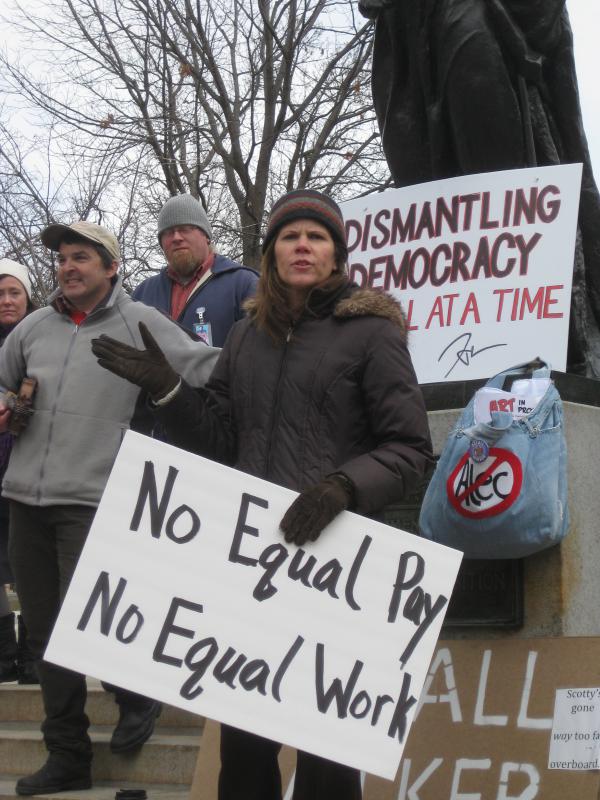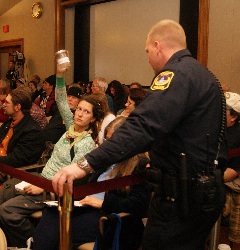Wisconsin GOP Goes After Equal Pay for Equal Work
 Late in the evening, on February 22, the Wisconsin Legislature turned back the clock gutting key provisions of Wisconsin's Equal Pay Enforcement Act (Act 20).
Late in the evening, on February 22, the Wisconsin Legislature turned back the clock gutting key provisions of Wisconsin's Equal Pay Enforcement Act (Act 20).
Rep. Chris Taylor (D-Madison), a long time women's rights advocate lamented: "It's like we're going back to 1912. We are fighting the same fight our mothers fought, just to be treated equally."
Senate Bill 202, authored by Senator Glenn Grothman (R-West Bend), passed on a party line vote. According to the Wisconsin Alliance for Women's Health, Act 20 sought "to secure equal pay for the thousands of working families who are denied fair pay due to wage discrimination based on race and gender." Specifically, the act was intended to deter employers from discriminating by opening an avenue to bring discrimination cases in state court with stiff penalties. Previously, victims were required to pursue lengthy administrative remedies through a state agency. SB 202 removed the compensatory and punitive damages for violations of Act 20, leaving it a toothless tiger.

 Wisconsin Governor
Wisconsin Governor